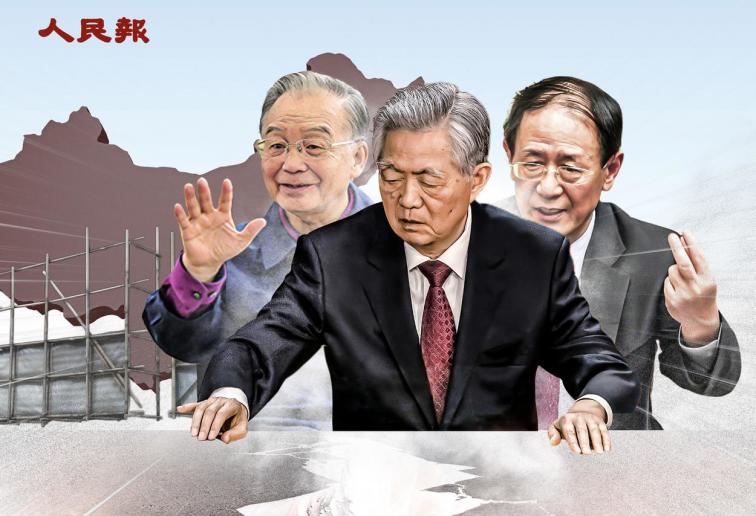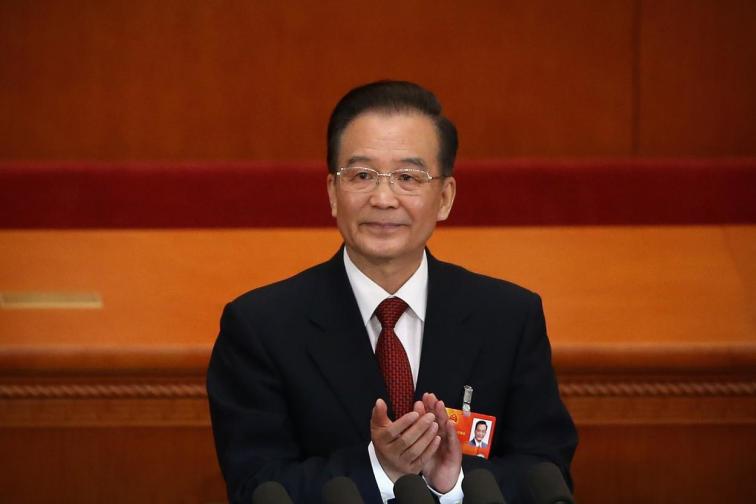Zhang Youxia counterstrikes against Xi Jinping (People News illustration)
[People News] Today (June 29), scholar Wu Zuolai posted on X (formerly Twitter), narrating in a satirical style Zhang Youxia’s emotional journey—from discontent to anger with Xi Jinping, culminating in a dramatic break, head-to-head confrontation, thwarting Xi’s plots, and ultimately wresting control of military power.
Wu Zuolai framed Zhang’s thoughts in literary form:
“When Boss (Xi) came after Liu Yuan, I was very unhappy—who doesn’t know Liu Yuan helped Xi to rise, and even survived multiple assassination attempts. What was Liu Yuan’s hope? Wasn’t it to work together to fulfil some political ideals? His most important ideal was to prevent the Cultural Revolution from recurring; he ran for a People’s Congress deputy.
When Boss went after Liu Yazhou, I knew this was serious. Yazhou opposed the Cultural Revolution and personality cult, and did not want to see our good country ruined by a pig; he aimed to achieve politically civilised modernisation in our generation.
I didn’t have political ideals, but I understood justice vs. injustice, and that tyranny is unpopular—I began to prepare for conflict.
They truly came for me, but they didn’t know our military strength, our surveillance, their traps, even their hotline telephones were all monitored by the military. All their plans failed.
People may act, but Heaven is watching; the waters of the Yangtze and Yellow Rivers never flow backwards.
At the Third Plenum, Boss suddenly fell ill—was it alcohol issues, or alcohol poisoning? Fate or design? Maybe in future there’ll be more explanation, even regarding Li Keqiang.
A central emergency group was formed, the elders stepped out, and the Politburo Standing Committee had had enough of humiliation and the charade. Everyone could hold their heads high; the Boss’s family breathed a sigh of relief—no longer obsessed with following old Mao into madness.
But we gave him and them face, let them stay in place, waiting to retire, and ensured their families’ safety—including Li Keqiang’s child, if Mingzhe is willing.”
Wu’s dramatic narration is, of course, fictionalised—but he weaves in many elements that can be cross-referenced with real events.
Earlier this year, at the close of China’s Two Sessions, one moment captured by an AP photo was revealing.
As Xi Jinping left, he paused to greet two Vice-Chairmen of the CPPCC—former Hong Kong Chief Executive Leung Chun-ying and former Macau Chief Executive Ho Hau-mui. The others around him smiled broadly—Leung even appeared a bit nervous, hands clasped awkwardly. Military Vice-Chairman He Weidong and others behind Xi turned to bid farewell respectfully, too. But Zhang Youxia remained still—he simply turned his head with a cold glance, then returned to gathering his documents, turning his back to Xi. This icy posture carried immense political symbolism.
An article by Liao Minghui on Free Commentary Net noted that in CCP public ceremonies, body language is often loaded with meaning. Zhang’s display of detachment was startling because military generals usually show overt deference. His indifference as Xi passed sent a powerful signal: shifts are underway in the military’s power structure.
How did Zhang reach such a place of cold defiance? Besides the well-known purges by Xi of Zhang’s loyalists within the military, Xi’s crackdown on the “Red Second Generation” also dealt a devastating blow.
Liu Yuan was one of the most significant “Red Second Generation” figures. Before Xi’s succession, Liu removed Deputy Logistics Minister Gu Junshan, clearing the way for Xi. After taking power, Xi—helped by Liu—brought down Vice-Chairmen Xu Caihou and Guo Boxiong, consolidating military control. But once their job was done, Liu was removed from military command and placed in a ceremonial position in the National People’s Congress.
In December 2024, rumours spread in Beijing that Liu Yuan submitted a memorial to the Party’s Central Committee. According to Yuan Hongbing, a Chinese jurist based in Australia, an insider revealed it was titled “Redundant Words”, echoing an article by Qiu Qiubai before his execution. Liu’s document listed China’s major crises—economic, social, political, and the Taiwan Strait. He pinpointed the root of the economic malaise in the ultra‑left policies since the 18th Party Congress and proposed three solutions: return to Reform and Opening Up, hide brightness and bide time, and a gradual shift toward social democracy.
In May, it was revealed that Xi invited Liu Yuan “for a talk”—but after the meeting, Liu was reportedly placed under house arrest. However, Liu had prepared beforehand: he informed Zhang Youxia of his whereabouts, saying, “If I don’t come back, you’ll know what to do.” And indeed, Liu never returned.
Zhang Youxia immediately led a 200‑man special forces team into Zhongnanhai, rescuing Liu. Reports say the Central Guard Bureau cooperated, entering through secret tunnels. This reveals a shift in Zhongnanhai’s core security—Director Zhou Hongxu is likely no longer Xi’s man.
In April last year, former Political Commissar of PLA National Defence University and Air Force General Liu Yazhou was sentenced to life for corruption. Xi’s purge of the “Red Second Generation” had been severe, but this was his harshest blow, signalling a total break with the princeling faction that had helped secure Xi’s rise.
Finally cornered, Xi chose to counterattack—but Zhang Youxia, though not central to the princelings, has emerged as the most resolute, forceful, and capable Red‑Second‑Generation military leader countering Xi.
(Originally published by People News)











News magazine bootstrap themes!
I like this themes, fast loading and look profesional
Thank you Carlos!
You're welcome!
Please support me with give positive rating!
Yes Sure!